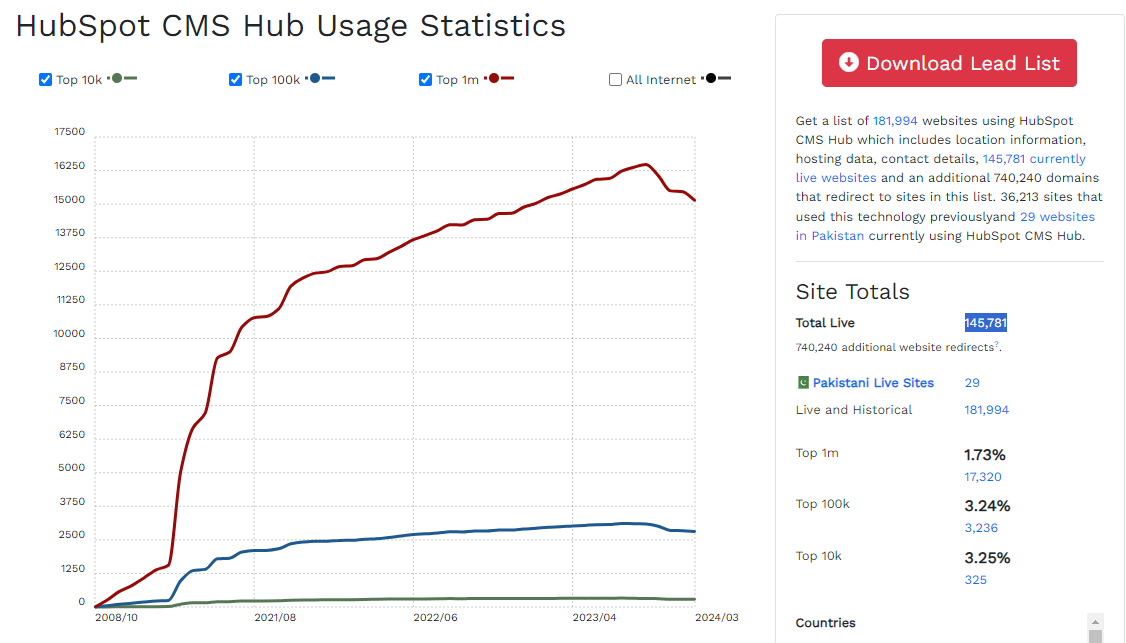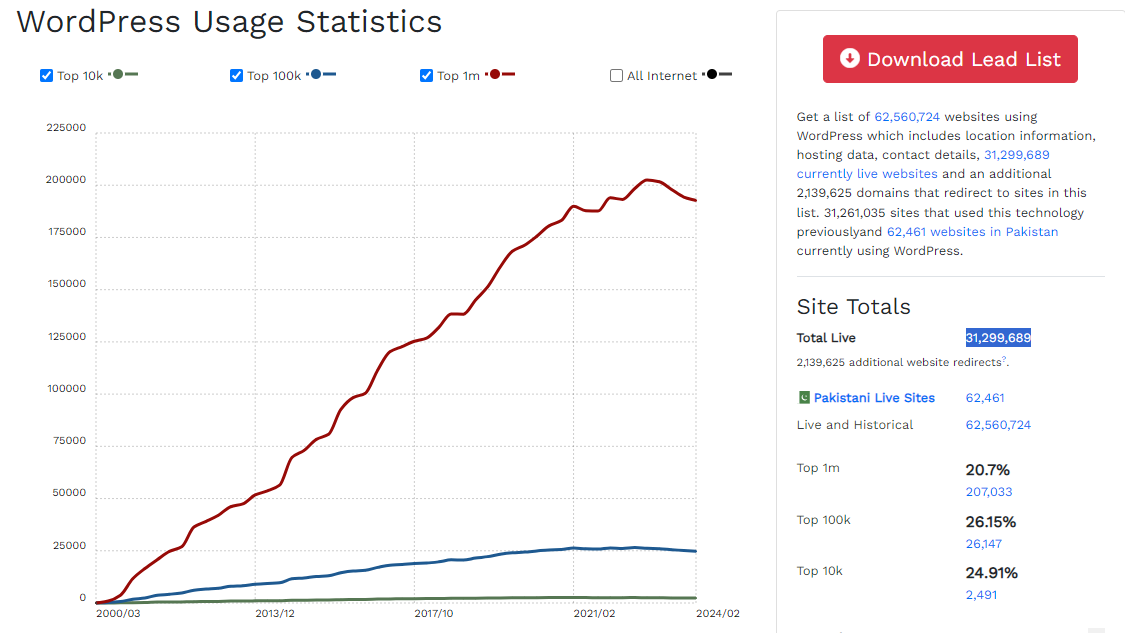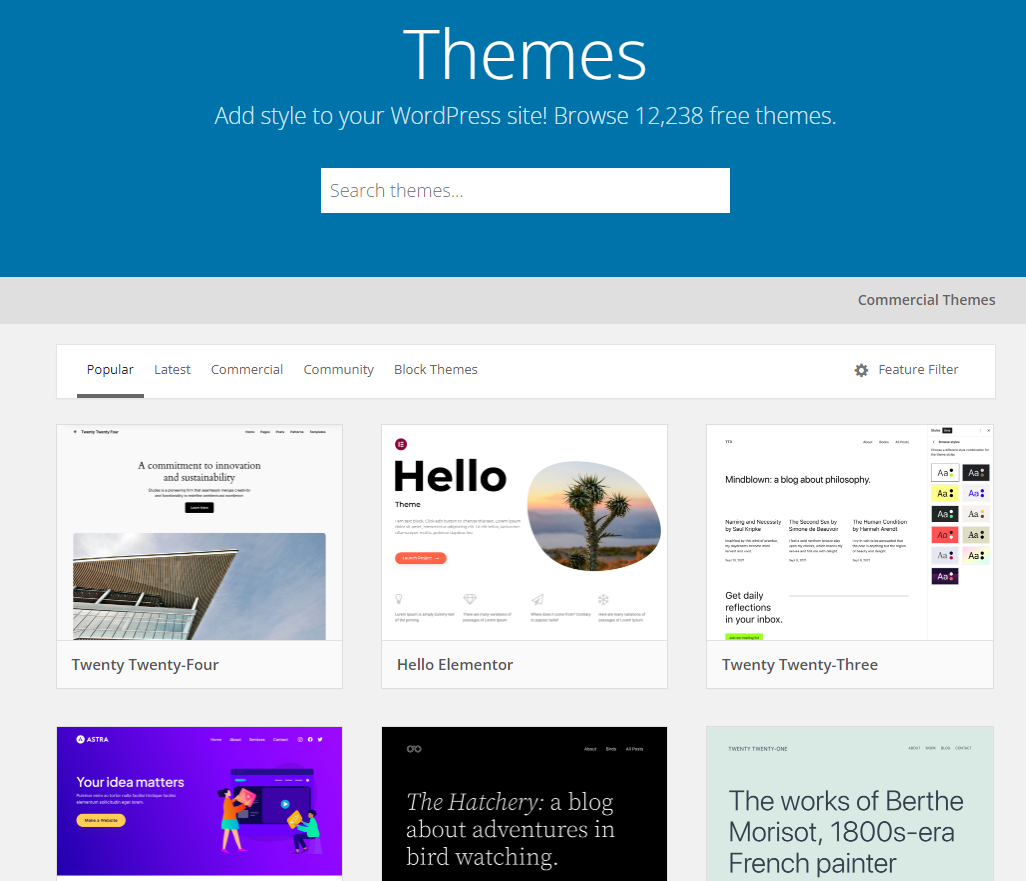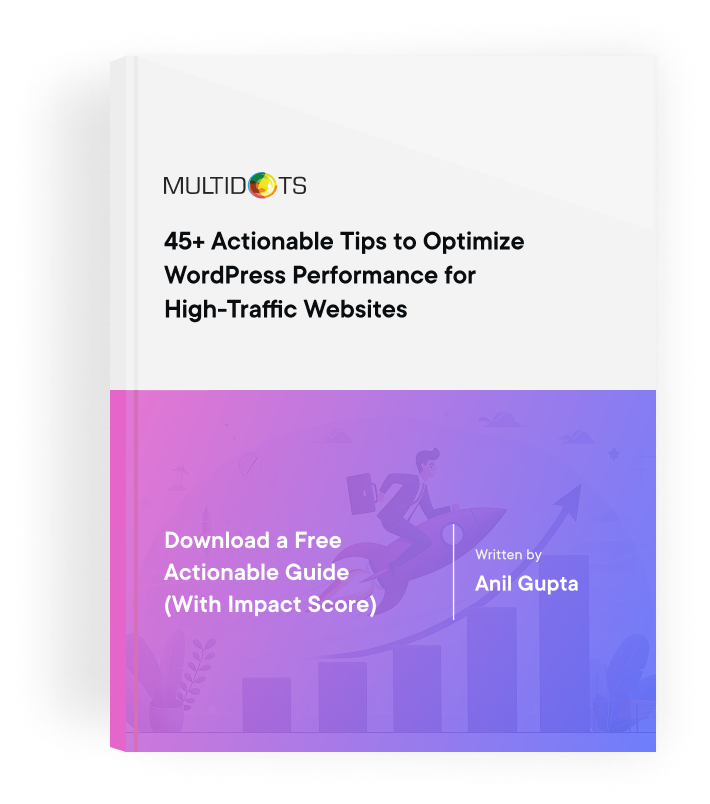HubSpot CMS vs WordPress: Which CMS is better to build websites
Compare HubSpot CMS and WordPress to determine which platform is best for building robust, enterprise-level websites

Table of Contents
With Content Management Systems, creating a website is easier than ever! Thanks to amazing tools like HubSpot CMS and WordPress, anyone can build a website without technical expertise.
However, WordPress emerges as the clear champion when creating a powerful and affordable website, as we will learn in this article later.
Sure, HubSpot might offer bells and whistles. It boasts a user-friendly interface and even integrates marketing tools. But this convenience comes at a premium. Subscription fees can quickly add up, locking you into a system with limitations.
WordPress, on the other hand, empowers you with freedom and flexibility. It's free to use, giving you complete control over your website's design, functionality, and budget.
With a massive directory of free and paid themes and plugins, you can tailor your website to your needs without breaking the bank.
But what about the learning curve? While WordPress offers more customization, it might seem daunting at first.
Here's the beauty: WordPress boasts a vast and supportive community because of its immense popularity. Countless tutorials, resources, and developers are readily available to help you navigate the platform.
This article will discuss both HubSpot CMS and WordPress, the costs involved, the features, pros and cons, and which CMS you should choose to build your website.
Feature Comparison
While both HubSpot and WordPress offer the essential tools for website development, WordPress stands out for its ability to create highly dynamic and complex websites, catering to diverse needs such as large publications, learning management systems (LMS), e-commerce platforms, and more.
For small and medium-sized businesses, both HubSpot and WordPress remain viable choices. However, WordPress's versatility and scalability make it the clear frontrunner for those seeking a robust solution capable of accommodating the demands of a complex online presence.
Now, let's delve deeper into each platform's specific features and capabilities.
HubSpot CMS’ Standout Features
- Offers integrated CRM functionality, enabling seamless marketing and sales operations alignment.
- Provides built-in SEO tools to optimize content for search engines.
- Simplifies content creation and management with a user-friendly interface.
- Offers robust built-in analytics and reporting capabilities to track website performance.
- Built-in security features to protect against threats.
Like every software, HubSpot CMS isn’t perfect. Let’s look at some cons of working with HubSpot.
HubSpot CMS Content Hub Cons:
- Higher pricing compared to self-hosted solutions.
- Limited customization options compared to WordPress.
- It has a relatively smaller community compared to WordPress.
- Can not build e-commerce websites easily.
WordPress Standout Features
- It offers a vast plugins and themes directory, allowing for extensive customization.
- Has a large and active community for support and resources.
- Flexible and scalable, it is suitable for websites of all sizes and complexities.
- Allows for complete control over website hosting and data ownership.
- Build fully functional e-commerce stores.
While WordPress is very flexible to work with, there are a few things you should be aware of.
WordPress Cons:
- Vulnerable to security threats if not properly managed.
- Can be overwhelming for beginners due to the steep learning curve.
- There are too many choices of themes, plugins, hosting companies, and other services, each claiming to be the best. Requires a lot of research to make the right choices.
Usage Statistics of both WordPress and HubSpot Content Hub
A standard metric for assessing the popularity of a software platform is to examine usage statistics. According to data from BuiltWith, WordPress boasts an extensive user base, with over 31,299,689 websites running on the platform.
In comparison, HubSpot CMS powers approximately 145,781 websites. This staggering difference reveals that WordPress dominates the market, with HubSpot websites only accounting for just 0.464% of the total number of WordPress websites.


Examples of Websites Built With WordPress and HubSpot’s Content Hub
HubSpot CMS boasts several notable brands that have chosen it to power their websites, showcasing the platform's capabilities and versatility:
Sites Using HubSpot CMS:
- HubSpot Blog
- Avast Academy
- Caithness Construction
- Allica Bank
- BioStrata
These examples illustrate the potential of HubSpot CMS in various industries. However, large and enterprise-level websites built with HubSpot are rare compared to WordPress.
Sites Using WordPress:
- The White House
- NASA
- Sony Music
- TechCrunch
- The Walt Disney Company
WordPress powers an extensive range of small to enterprise-level websites, including government portals, renowned organizations, and global corporations.
Its flexibility, scalability, and robustness make it a preferred choice for large-scale projects across diverse sectors.
HubSpot CMS vs WordPress: Price Comparison
HubSpot CMS offers a tiered pricing structure based on required features and services. Their CMS Hub has three tiers: Starter, Professional, and Enterprise.
Prices start at $20 per month for the Starter edition, and $400 per month for Professional, and Enterprise pricing is available upon request, tailored to specific business needs.
WordPress, on the other hand, is open-source software, meaning the core software is free to use, and you can download it free from WordPress.org.
However, you'll need to budget for hosting, domain registration, and potentially premium themes or plugins. Hosting costs can vary widely depending on the provider and the resources required by your website.
| HubSpot CMS | WordPress | |
|---|---|---|
| Core Software | Tiered pricing: Starter, Professional, Enterprise | Free (Open-source) |
| Starter Edition | $20 per month | Free |
| Professional Edition | $400 per month | Hosting Costs (Varies by provider) |
| Additional Expenses | Potential Additional Fees for specialized features or add-ons Custom Development | Premium Themes or Plugins (Optional)Hosting Costs |
| Support and Resources | Included in Pricing | Wide range of online resources, forums, and support |
WordPress Editor vs. HubSpot Content Hub Templates
HubSpot offers a carefully curated marketplace of extensions and themes designed specifically for its platform.
Although the selection may be more limited than WordPress, HubSpot prioritizes quality and seamless integration with its suite of marketing tools.
On the other hand, WordPress boasts an extensive repository of themes, numbering in the tens of thousands. The platform's vibrant ecosystem caters to diverse tastes and requirements, with themes available for every niche and industry.
The core WordPress Editor, Gutenberg, is versatile and works with thousands of themes supporting Full-Site Editing (FSE).

WordPress is also enriched by various templates, provided in many premium themes, that can be edited with Gutenberg. They are tailored to suit different websites, from blogs and portfolios to e-commerce stores and corporate sites.
WordPress offers a user-friendly no-code content publishing experience through its block editor allowing users to style their content and pages easily.
These intuitive tools enhance the flexibility and versatility of WordPress themes, allowing users to create unique and visually stunning designs easily.
HubSpot CMS vs WordPress: Security
While both platforms offer security features, WordPress is the stronger contender due to its community-driven approach and flexible security solutions.
Here's a detailed comparison:
HubSpot CMS
- Pros:
- Automatic Updates: HubSpot handles all core software updates and security patches, ensuring your website remains protected against known vulnerabilities.
- Closed-Source Platform: Being closed-source means there's less public information about the platform's inner workings, potentially making it a less attractive target for hackers.
- Cons:
- Reliance on HubSpot: You ultimately trust HubSpot's security infrastructure to keep your website safe.
WordPress
- Pros:
- Active Security Community: WordPress benefits from a large, active community of developers constantly working to identify and address security issues. This translates to quicker fixes and a proactive approach to emerging threats.
- Security-Focused Resources: Numerous security blogs and forums cater to the WordPress community, offering best practices, troubleshooting tips, and solutions for specific vulnerabilities.
- Flexible Security Solutions: WordPress offers a vast directory of free and paid security solutions. Popular options include firewalls, malware scanners, login attempt monitoring tools, and vulnerability detection plugins. You can create a layered security strategy for comprehensive protection.
- Cons:
- Open-Source Platform: The open-source nature of WordPress makes it a known target for hackers. However, due to its flexibility and control, you can tighten the security more than any closed-source CMS.
Why WordPress Wins on Security
While HubSpot CMS offers convenience with automatic updates, WordPress empowers users with:
- Community-Driven Security: The active community identifies and reports vulnerabilities, leading to faster patches from developers.
- Flexible Security Solutions: The vast library of plugins allows you to customize your security approach with firewalls, malware scanners, and more.
- Security-Conscious Hosting: Many WordPress hosting providers offer automatic updates, malware scanning, and firewalls as part of their services, further enhancing your website's security posture.
Remember
Security is an ongoing process, regardless of the platform. Here are some additional tips:
- Use strong passwords and two-factor authentication.
- Back up your website regularly.
- Stay informed about security best practices.
- Keep your websites up to date.
- Use only trusted software.
You can create a secure website on WordPress by planning and implementing your security details. There is a reason many enterprise websites and large e-commerce stores trust WordPress.
14 Reasons Why WordPress is Better Than Using HubSpot
Both HubSpot Content Hub and WordPress are good CMSs, but WordPress delivers on all fronts, including ease of use, low cost, complete control over data, and scalability.
It is a popular choice; you can’t go wrong with building a website with WordPress. Let’s recap fourteen reasons why you should consider WordPress.
1. Flexibility
WordPress offers unparalleled flexibility, allowing users to create virtually any website, from simple blogs to complex e-commerce platforms.
2. Cost
With WordPress being open-source and offering a wide range of free plugins and themes, the overall cost of building and maintaining a WordPress website can be significantly lower than HubSpot, especially for small businesses and startups.
3. Community Support
WordPress has an active community of developers, designers, and users who contribute to its growth and provide support through forums, tutorials, and documentation.
4. Ownership and Control
With WordPress, you have complete ownership and control over your website's data, hosting, and customization, allowing you to make changes and updates as needed without dependency on a single platform provider.
5. Scalability
WordPress is highly scalable and can accommodate websites of all sizes and complexities, making it a versatile choice for businesses looking to grow and expand their online presence over time.
6. SEO Friendliness
While HubSpot provides built-in SEO tools, WordPress offers a plethora of SEO plugins like Yoast SEO and All in One SEO Pack, allowing for more granular control and optimization of your website's search engine rankings.
7. Ecosystem Diversity
WordPress powers over 40% of the web, meaning there's a vast ecosystem of developers and service providers specializing in WordPress. This diversity results in various solutions and integrations to meet the unique needs of different industries and businesses.
8. Extensibility
With WordPress, you're not limited to a single provider's ecosystem. You can choose from a variety of hosting providers, themes, plugins, and third-party services, giving you the flexibility to tailor your website stack to your specific requirements and budget.
9. Open-Source Philosophy
WordPress embodies the ethos of open-source software, fostering collaboration, transparency, and innovation. This philosophy ensures that WordPress remains adaptable to changing technologies and user needs, continuously evolving and improving.
10. Security
While both HubSpot and WordPress prioritize security, WordPress's open-source nature means that security vulnerabilities are often quickly identified and patched by a vast community of developers.
Additionally, WordPress offers a wide range of security plugins and best practices to enhance website protection.
11. Integrations
WordPress's extensive plugin ecosystem enables seamless integration with various third-party services and tools, enhancing functionality and workflow automation.
This level of integration can be particularly advantageous for businesses that rely on multiple platforms for marketing, e-commerce, or analytics.
12. Long-Term Viability
WordPress has stood the test of time, continuously evolving since its inception in 2003. Its widespread adoption and strong community support make it a safe and reliable choice for building websites that can adapt to changing trends and technologies over the long term.
13. Custom Development
With WordPress, you have the option to hire developers or utilize your own coding skills to create custom solutions tailored to your exact specifications. This level of flexibility and control is especially valuable for businesses with unique requirements or specialized functionality needs.
14. Ownership of Data
When you build a website with WordPress, you retain full ownership and control of your website's data. This means you cannot rely on a single provider to access your content and can easily migrate your website to a different hosting provider.
| Reason | Advantage |
|---|---|
| Cost | Free to use (except hosting) |
| Customization | Unmatched control over design and functionality |
| Open-Source | Access to code, future-proof, vast community |
| SEO Friendly | Granular SEO control with plugins |
| Developer Friendly | Modify core files, create custom themes/plugins |
| Community & Support | Huge, active community for help and resources |
| Flexibility | Integrates with almost any service or tool |
| E-commerce Ready | Powerful e-commerce plugins like WooCommerce |
| Multilingual Support | Easy to translate your website with plugins |
| Scalability | Grows with your website's needs |
| No Vendor Lock-in | Easily migrate your website away from WordPress |
| Ownership of Data | You own your website's data |
| Self-Hosted | More control over the server environment |
| Learning Resources | Abundant tutorials, documentation, and courses |
Final Words about HubSpot CMS vs WordPress
While HubSpot CMS offers certain advantages, such as easy integration with HubSpot's marketing and sales tools, WordPress emerges as the preferred choice for many website builders due to its flexibility, affordability, and extensive ecosystem.
With WordPress, you can customize your website to your exact specifications, integrate with a wide range of third-party services, and retain ownership and control of your data.
By carefully evaluating your needs and priorities, you can decide which CMS is better suited to build your website. WordPress is obviously a better choice if you plan to build a long-lasting online presence.
Feel free to schedule a quick call with our migration expert.
Contact Us
